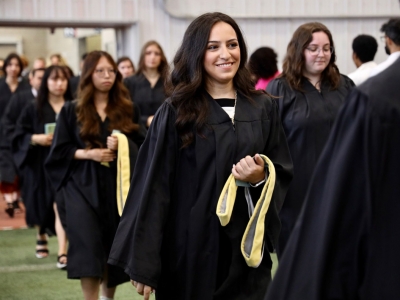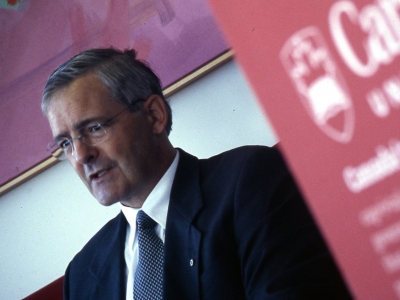OTTAWA, Feb. 24, 2022 (GLOBE NEWSWIRE) — The Ericsson-Carleton University Partnership for Research and Leadership in 5G Wireless Networks has established a new $2-million Ericsson Chair in 5G Wireless Research to explore solutions to the real-world application challenges of 5G.
“Anything that requires information transmission will happen on 5G,” said Ioannis Lambadaris, the Ericsson Chair in 5G Wireless Research and Chancellor’s Professor in Carleton’s Department of Systems and Computer Engineering. “Fiber optics will retreat into the background and 5G wireless will be what consumers actually interact with. The new 5G infrastructure will seamlessly integrate into every aspect of life—from entertainment to emergency response to communications.”
5G is more than just an update to existing wireless networks. It is a new system being built from the ground up that will modernize applications in industries such as health care, agriculture, transportation, robotics and autonomous vehicles.
“We are thrilled to announce this chair in 5G wireless at Carleton,” says Rafik Goubran, Vice-President (Research and International). “The research that Chancellor’s Professor Ioannis Lambadaris is conducting with Ericsson will help steer the future of 5G and will impact us all. We are extremely appreciative of Ericsson’s support and collaboration.”
Once 5G is established, billions of people will use these networks on more than just their mobile devices. A proliferation of connected devices is expected in the coming decade, and by 2030 there could be more than 25 billion of them. This will create demand for data that far exceeds anything experienced to date, and even ultra-fast 5G networks will require enhancements to cope with the expected traffic levels.
As research chair, Lambadaris will focus on some of Ericsson’s pressing challenges. Among his current research projects are the development of mathematical techniques for indoor localization over 5G, drone control systems that allow beyond visual line of sight (BVLOS) operations over 5G, and an algorithm that reduces latency in drone control systems, enabling error-free operation of drone autostabilization systems.
“The creation of the Ericsson Chair in 5G Wireless Research strengthens our long-term collaboration with Carleton University to advance 5G’s evolution, not only in Canada but around the world,” said Sandra Ballarte, Talent Development Leader and Head of Radio Hardware Development with Ericsson’s Ottawa R&D office. “Our research addresses technology challenges to help develop state-of-the-art products for the future of 5G wireless communications.”
Ericsson Canada established the chair with an investment of $1-million. That amount has been matched by Natural Science and Engineering Research Council of Canada’s (NSERC) Alliance Grant program for a total commitment of $2-million. This funding will help create a constant and growing presence of industry engineers at Carleton and will build links with leading experts in the field.
“This announcement further demonstrates Ericsson’s long-term commitment to invest in Canada’s leading academic institutions,” said Viet Nguyen, Head of Government and Industry Relations, Ericsson Canada. “Today, we collaborate with more than 18 of the country’s top universities and colleges to develop solutions for businesses and the broader community, and we look forward to future opportunities to develop partnerships with a purpose.”
Media Contact
Steven Reid (he/him)
Media Relations Officer
Carleton University
613-265-6613
Steven.Reid3@carleton.ca
Jannie Tong
Director, External Communications
Ericsson North America
+1-214-415-0815 (U.S. Central Time)
jannie.tong@ericsson.com
Thursday, February 24, 2022 in News Releases
Share: Twitter, Facebook



